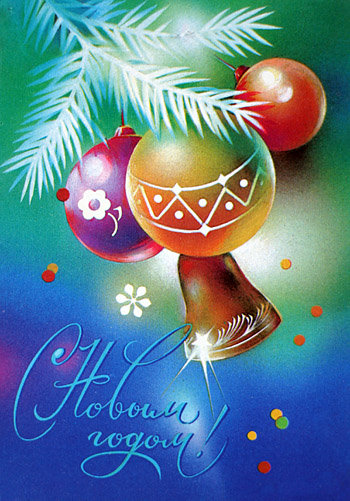Ездить
Ездить is the most generic word in Russian that means “to go by vehicle.”
| to go | |
| Imperfective | |
| Infinitive | ездить |
| Past | ездил ездила ездило ездили |
| Present | езжу ездишь ездит ездим ездите ездят |
| Future |
буду ездить будешь ездить будет ездить будем ездить будете ездить будут ездить |
| Imperative | езди(те) |
Although we often say the verb addresses motion by vehicle, it's actually broader that that. It covers travel on animals (horse, donkey, camel, etc.), bicycle or motorcycle or scooter, and by the typical wheeled conveyances like train, bus, car and truck. In addition to the “go” translations, words like “ride” and “drive” are also suitable:
| Каждое утро я езжу на работу на своей машине. | Every morning I drive to work. |
| Каждую субботу я езжу в парк на своём велосипеде. | Every Saturday I ride my bike to the park. |
| Автобусы ездят из Тулы в Брянск два раза в день. | Buses go from Tula to Bryansk twice a day. |
The verb is also used to describe the driving around a locale with no set direction, e.g., driving around an area for sight-seeing, or going here and there to shop. In this meaning the verb is complemented by the preposition по with the dative case:
| В воскресенье мы ездили по Москве, посещали самые знаменитые места, в том числе и Красную площадь, Воробьёвы горы, Парк им. Горького. | On Sunday we drove all over Moscow visiting the most well-known spots including Red Square, Sparrow Hills, and Gorky Park. |
Last but not least, the verb is used to indicate a single completed trip in the past. In this usage it implies that the person is no longer at the place mentioned.
| Вчера мы ездили в Тулу. | Yesterday we went to Tula (and then came back). |
| В августе я ездила в Загорск. Как там было красиво! | In August I went to Zagorsk. It was so pretty there! |
Поздравлять/поздравить

Ah, pity the poor foreigner who has to come to the US and offer his congratulations to someone. If it's December 25th, he must say “Merry Christmas,” whereas “Happy Christmas” just sounds weird. If it's January first, he must say “Happy New Year,” whereas “Merry New Year” sounds freakish. If it's a wedding or birth or a graduation, then he must say “congratulations.” It's enough to drive a foreigner back home.
The Russians, on the other hand, have a verb that works for absolutely every holiday and well-wishing event, and that is the verb поздравлять/поздравить “to congratulate.” It is conjugated like this:
| to congratulate | ||
| Imperfective | Perfective | |
| Infinitive | поздравлять | поздравить |
| Past | поздравлял поздравляла поздравляло поздравляли |
поздравил поздравила поздравило поздравили |
| Present | поздравляю поздравляешь поздравляет поздравляем поздравляете поздравляют |
No such thing as perfective present in Russian. |
| Future |
буду поздравлять будешь поздравлять будет поздравлять будем поздравлять будете поздравлять будут поздравлять |
поздравлю поздравишь поздравит поздравим поздравите поздравят |
| Imperative | поздравляй(те) | поздравь(те) |
The person you congratulate goes in the accusative case:
| Поздравляю тебя! | Congratulations! |
| Поздравляю вас! | Congratulations! |
| Она поздравила меня. | She congratulated me. |
| Виктор поздравил её | Victor congratulated her. |
If you mention the event triggering the congratulations, it goes in the instrumental case after the preposition с:
| Поздравляю тебя с Новым годом! | Happy New Year! |
| Поздравляю вас с Рождеством Христовым! | Merry Christmas! |
The Russians also sometimes simply skip the person and the verb, leaving only the prepositonal phrase:
| С Новым годом! | Happy New Year! |
| С Рождеством Христовым! | Merry Christmas! |
Although the event may be the name of a holiday, it could also be a good grade, or a new car, or pretty well anything else:
| Миша поздравил Таню с пятёркой. | Misha congratulated Tanya for getting an A. |
| Поздравляю с новой машиной! | Congatulations on the new car! |
| — Здравствуйте, Иван Андреевич! Я слышал, что в прошлом месяце Ваш развод наконец-то был окончательно оформлен. Поздравляю Вас! — Благодарю Вас. Вас благодарит и моя новая жена. — Что-что? Вы ещё раз женились? Ну… значит… ы-ы-ы… поздравляю Вас и со свадьбой. — От всей души благодарю. |
“Hello, Ivan Andreevich, I heard that last month your divorce was finalized. Congratulations!” “I thank you very much. My new wife also thanks you.” “What's that? You've already remarried? Well… so… ummm… congratulations upon your marriage.” “I thank you from the bottom of my heart.” |
Ноль, нуль (часть первая)
Russian has two words for zero, and they are ноль and нуль. For most purposes they are completely interchangeable and decline like this:
| Sg | Pl | |
| Nom | ноль | ноли |
| Acc | ноль | ноли |
| Gen | ноля | нолей |
| Pre | ноле | нолях |
| Dat | нолю | нолям |
| Ins | нолём | нолями |
You will most encounter these words is when reading phone numbers out loud. In the US one usually reads phone numbers out loud digit by digit:
| The number | is pronounced |
| 792-0390 | seven nine two oh three nine oh |
In Russia they usually break up a seven-digit number into groups of 3-2-2, and you say ноль only when the zero is the first unit in a group of two or three digits, thus:
| The number | is pronounced |
| 792-03-90 | семьсот девяносто два, ноль три, девяносто |
(The first zero is pronounced as ноль, and the second zero is understood as part of девяносто.)
In the US most people do not refer to the time of day using the twenty-four hour clock (“military time”) unless they have served in the military or are engaged in precise time-keeping functions, but in Russia all official schedules are posted in twenty-four time, so the phrase «ноль часов ноль минут», which means literally “zero hours zero minutes” and can be translated “oh zero hundred” in military parlance, sounds perfectly normal to an average Russian. You can even hear the phrase in the song «В ноль часов и ноль минут» “At midnight,” which is a cute little tune about how hard it is as a child to stay awake all the way till midnight on New Year's Eve. Click the title of the song just above to hear it. Do listen to it. It's charming.

Не (часть вторая)
After two weeks of studying Russian every student knows that не means not. Thus «Я не говорю по-русски» means “I do not speak Russian.” Seems pretty simple. Nonetheless, не can sometimes be misleading because Russians often use не in offers/suggestions to make them softer, more polite, less pushy. Consider the following sentences and translations:
| Не хочешь пойти в кино? | Would you like to go to the movies? |
| Не хочешь чая? | Would you like some tea? |
| Не будем смотреть телевизор? | Shall we watch TV? |
| Не передашь мне журнал? | Could you hand me the magazine? |
Notice that none of the English translations have ‘not’ in them. The не in the Russian sentence simply makes the request a bit more polite, and therefore the best translation of such sentences often contains could or would in them.
Notice that a beginner might be tempted to translate «Не хочешь чая?» as “Don't you want some tea?” That would be a bad translation. When an English speaker asks “Don't you want some tea?”, he is asking because he is surprised that the other person doesn't seem to want tea.
Стоять
The verb стоять means “to stand”:
| Imperfective | Perfective | |
| Infinitive | стоять | постоять |
| Past | стоял стояла стояло стояли |
постоял постояла постояло постояли |
| Present | стою стоишь стоит стоим стоите стоят |
No such thing as perfective present in Russian. |
| Future |
буду стоять будешь стоять будет стоять будем стоять будете стоять будут стоять |
постою постоишь постоит постоим постоите постоят |
| Imperative | стой(те) | постой(те) |
In the “stand” meaning it's used pretty much like one would expect:
| В парке я услышал, как играли на гитаре. Музыка была так красива, что я там постоял минут пятнадцать, не двигаясь. | In the park I heard someone playing the guitar. The music was so beautiful that I stood there for about fifteen minutes without moving. |
| Дима, чего ты там стоишь? Пойди на кухню и помоги маме. | Dmitri, what are you standing there for? Go to the kitchen and help your mother. |
The Russians use the verb стоять much more than English speakers use the word “to stand.” Very often if an object is stationed somewhere in a vertical position, the Russians will use it where an English speaker will simply use the verb “to be”:
| На столе стояла ваза с цветами. | There was a vase full of flowers on the table. |
| В моей спальне стоят два шкафа. | There are two armoires in my bedroom. |
The command form is often used in the sense of “stop” or “don't move”:
| Стой! Не двигайся! Подъезжает машина! | Stop! Don't move! There's a car coming! |
| Стой, а то наступишь на змею! | Don't move, or you'll step on a snake! |
<< 1 ... 81 82 83 ...84 ...85 86 87 ...88 ...89 90 91 ... 158 >>